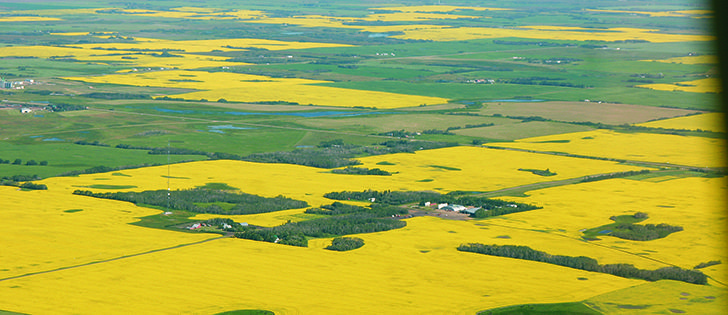Growers are likely to plant another big crop of canola next year despite huge carryout forecasts for seed and oil, says one of Canada’s largest crushers.
Bunge Canada was originally forecasting a five percent decline in seeded acreage next year, but the company is rethinking that outlook.
“I was at a canola meeting yesterday where the seed developers were talking about higher acre numbers,” said Ray Elliott, Bunge’s manager of seed procurement for Western Canada.
He has conducted a preliminary return per acre calculation for 2014, and canola remains on top of the pack of the major crops grown in Western Canada, with the exception of soybeans in Manitoba.
“It’s showing good returns. We haven’t really seen a (drastic) slide in prices yet,” said Elliott on Dec. 4.
That’s surprising given Bunge’s dismal outlook for canola seed and oil carryover.
The company was assuming 18.1 million tonnes of 2013-14 canola production long before Statistics Canada released its 17.96 million tonne estimate Dec. 4.
Read Also

Critical growing season is ahead for soybeans
What the weather turns out to be in the United States is going to have a significant impact on Canadian producers’ prices
Bunge forecasts 8.7 million tonnes of exports, seven million tonnes of crush and 2.87 million tonnes of carryover. The carryover figure is 2.23 million tonnes more than last year and double the amount Agriculture Canada was forecasting before the new StatsCan production estimate. It would be a record amount.
“It feels big right now,” Elliott said in an interview following a presentation he delivered at Agri-Trend’s 2013 Farm Forum Event.
However, he said it’s still early in the crop year and there is plenty of time for an increase in exports or crush volumes.
“I’ve noticed over the years that somehow the carryout number, when it looks like 2.8 (million tonnes) this time of year, often makes it down closer to two (million tonnes).”
Based on Bunge’s initial forecast of a five percent decline in acres next year and average yields, the carryover in 2014-15 would drop only slightly to 2.67 million tonnes.
Some of the crusher’s farmer customers are selling some of their anticipated 2014 crop based on those numbers.
“We’ve got quite a bit on (the books) for 2014 crop already,” said Elliott.
The tight U.S. soybean crop is the big factor supporting canola prices. The U.S. Department of Agriculture is forecasting 170 million bushels of carryover, or 19 days worth of stocks.
Bunge thinks ending stocks will be less than half of that amount at 80 million bu. or nine days of stocks, because of higher crush and export numbers than what the U.S. Department of Agriculture is forecasting.
“There is really good use on the U.S. soybean crop, so we’ve actually got a fairly tight carryout,” said Elliott.
However, South American farmers are producing a “robust” soybean crop that could reduce demand for U.S. soybeans.
Canola oil demand is expected to be sluggish in 2013-14 and the following year because of slumping demand from China.
“They’re kind of indicating that they’re not going to be taking as much and putting it into their storage in China, so it’s quite a void in the marketplace,” Elliott told Agri-Trend delegates.
Bunge is forecasting 164,000 tonnes of canola oil carryover, which is 100,000 tonnes more than the previous five-year average.
“That potentially could grow even bigger,” he said.
The company is forecasting 406,000 tonnes of oil carryover in 2014-15.
Elliott tempered the outlook with a reminder that it is early in the year. The price could drop if China isn’t buying as much oil as usual, which would stimulate demand and reduce the carryover estimates.


















